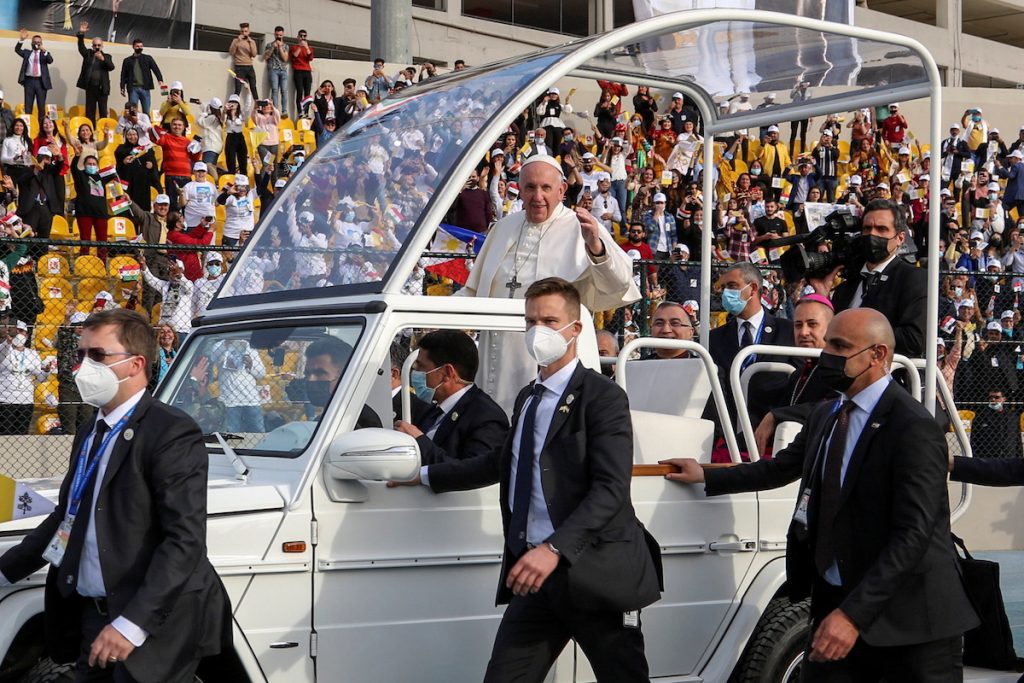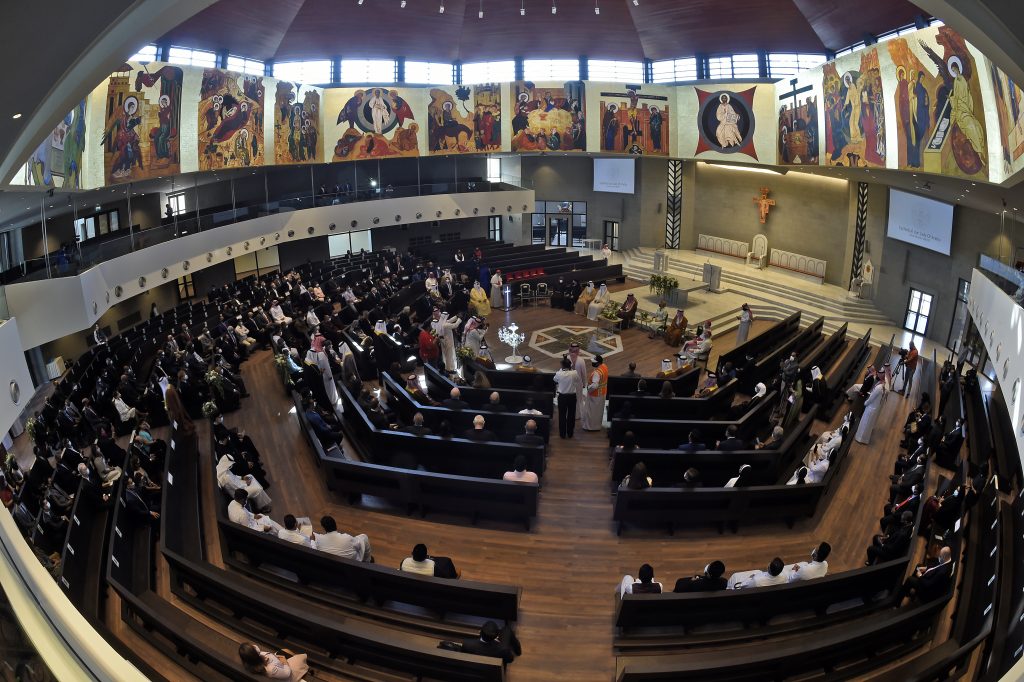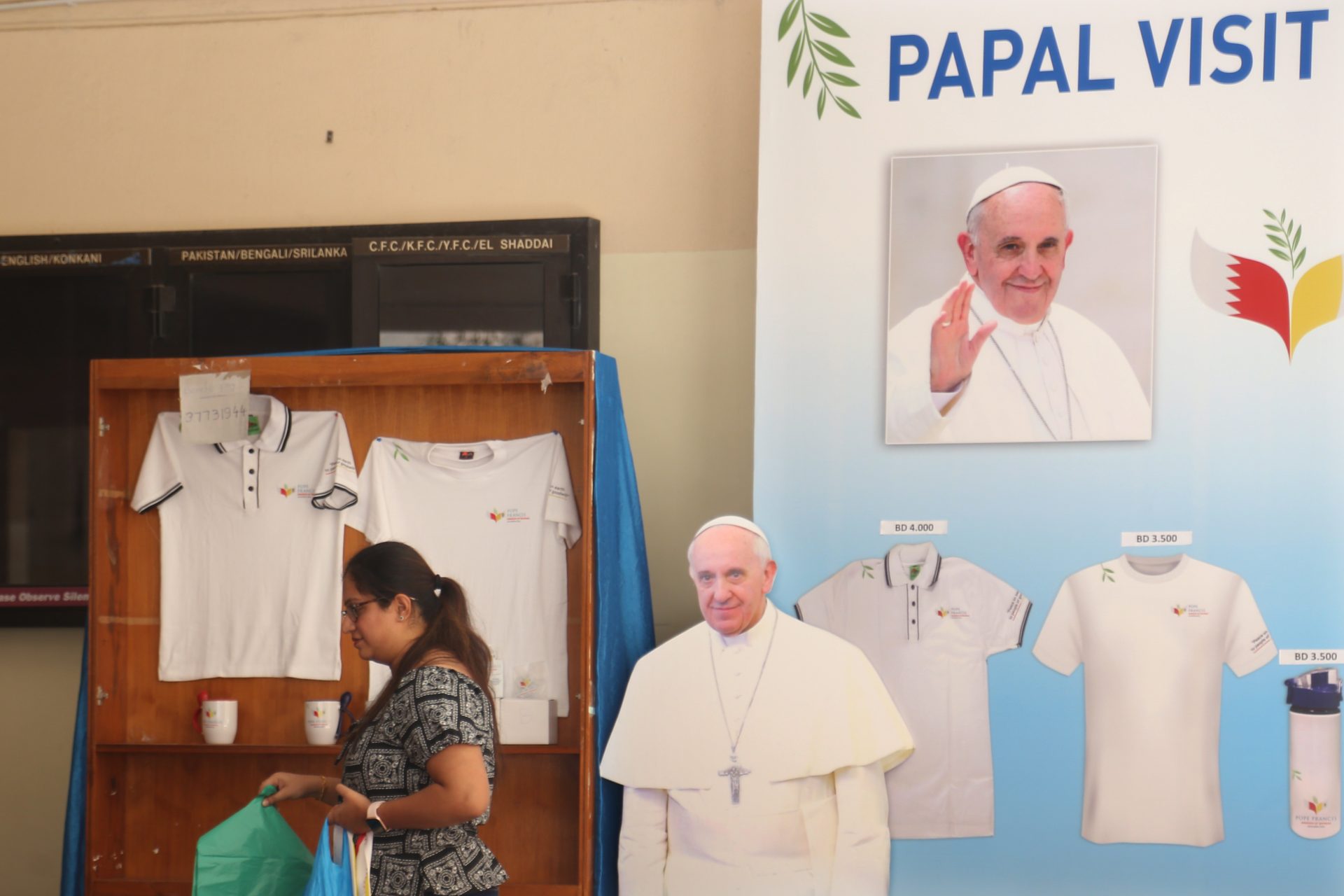Pope Francis will become the first pontiff in history to visit Bahrain, in a trip this week that is hoped will cement ties with Islam but is also marked by accusations of human rights abuses in the Gulf state.
The Thursday-to-Sunday visit — the 39th international trip of Pope Francis’ papacy — comes three years after his historic trip to the United Arab Emirates in 2019, where he signed a Muslim-Christian manifesto for peace.
But some human rights groups now hope Pope Francis will press Bahrain’s Sunni leader, King Hamad bin Isa Al-Khalifa, to halt repression against Shiite Muslims, though the rights record of neighbor Qatar has drawn more attention in recent months ahead of the World Cup.
The Argentine pontiff, 85, has made outreach to Muslim communities a priority during his papacy, visiting Middle Eastern countries including Egypt in 2017 and Iraq last year while pledging interfaith dialogue with leading Muslim clerics.
On Friday, Pope Francis plans to meet with Sunni Islam’s highest authority, Sheikh Ahmed al-Tayeb, the grand imam of Cairo’s prestigious Al-Azhar mosque and center of Islamic learning, at Sakhir Palace in the center of the country.
The two religious leaders signed a joint document in Abu Dhabi in February 2019 pledging interfaith co-existence between Christians and Muslims. That visit marked the first ever by a pope to the Gulf region, where Islam was born.
Pope Francis will also meet with the Abu Dhabi-based Muslim Council of Elders for an “East and West” forum, with Muslim communities in the West, humanitarian crises, climate issues and Muslim-Christian relations on the agenda.

Religious tolerance?
Also on Friday, the leader of the world’s 1.3 billion Catholics — expected to be confined to a wheelchair during his trip due to persistent knee pain — will lead an ecumenical prayer in Awali’s cavernous Our Lady of Arabia Cathedral, which opened its doors December.
The cathedral that seats over 2,000 people was built to serve Bahrain’s approximately 80,000 Catholics, mainly workers from southern Asia, including India and the Philippines.
Bahrain, like the United Arab Emirates, is considered a relatively more tolerant Arab nation, in comparison with ultra-conservative Sunni powerhouse Saudi Arabia — repeatedly cited by human rights groups for abuses — whose absolute monarchy does not recognize freedom of religion and which bans all non-Muslim places of worship.
Still, NGOs continue to cite discrimination, repression and harassment in Bahrain by the Sunni elite against Shiites, crackdowns on opposition figures and activists, and other abuses.
“Pope Francis should heed his own call and publicly demand that Bahrain halt all executions, abolish the death penalty, and seriously investigate torture allegations and violations of the right to a fair trial,” said a joint statement by Human Rights Watch and eight other groups released on Tuesday.
“He should also urge Bahraini officials to issue a decree reiterating the prohibition in Bahrain’s constitution and laws of all forms of torture and ill-treatment,” the groups said.
“In addition, Pope Francis should press King Hamad to free everyone imprisoned for exercising their right to freedom of association, peaceful assembly, and expression, including rights defenders, opposition activists, and journalists. He should press Bahraini authorities to end abuses against migrant workers.
“Prominent Bahraini opposition leaders have languished in prison for more than a decade for their roles in the 2011 pro-democracy protests,” the statement said.
Bahrain’s annual Formula One race has also frequently attracted criticism over the country’s human rights record. In 2011, the Grand Prix was cancelled amid a harsh crackdown in the wake of the protests.
Looming over Pope Francis’ visit is the World Cup later this month in nearby Qatar, which has shone a spotlight on its human rights record, particularly treatment of its low-income migrant workers, women and the LBGTQ community.

Flocking to Mass
On Saturday, the pope will celebrate a mass in a stadium in Bahrain’s second-largest city Riffa before an expected 28,000 faithful, according to priest Charbel Fayad.
“We are happy to see many Christians from the region,” he told AFP, saying he expected worshippers from other Gulf countries.
The pope — who concludes his trip Sunday in Manama leading a prayer meeting with Catholic clergy — has visited various Muslim-majority countries during his pontificate, including Jordan, Turkey, Bosnia-Herzegovina, Egypt, Bangladesh, Morocco, Iraq and most recently in September, Kazakhstan.







